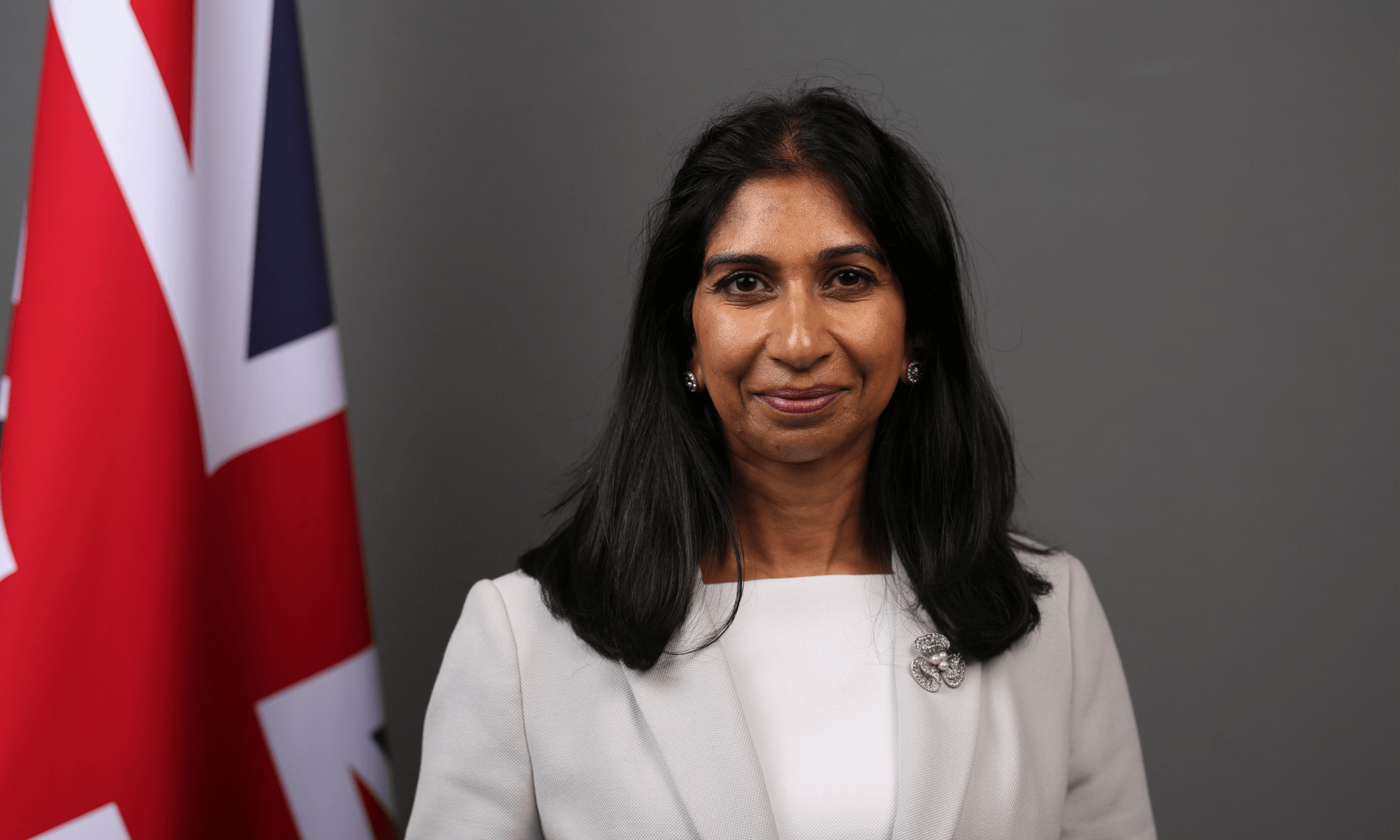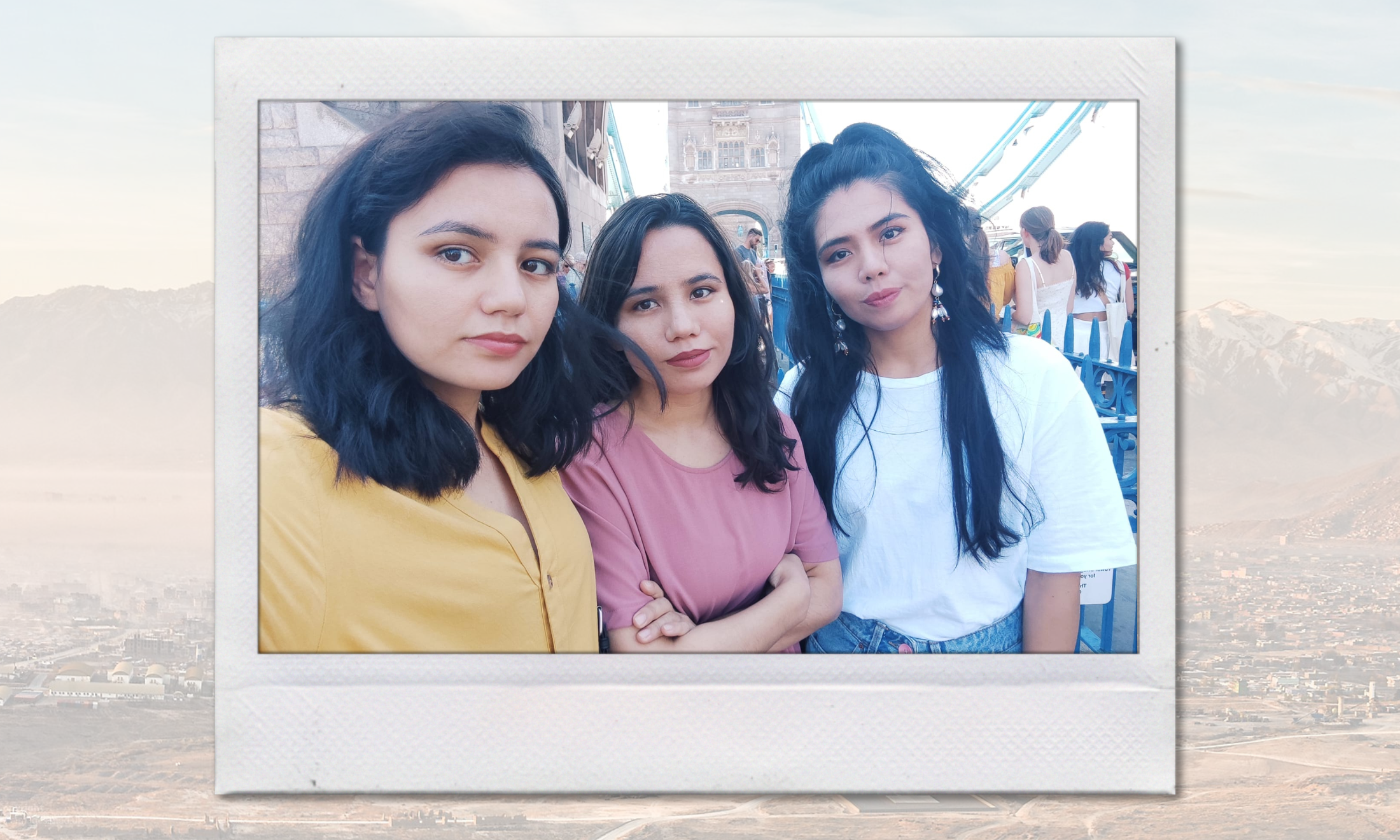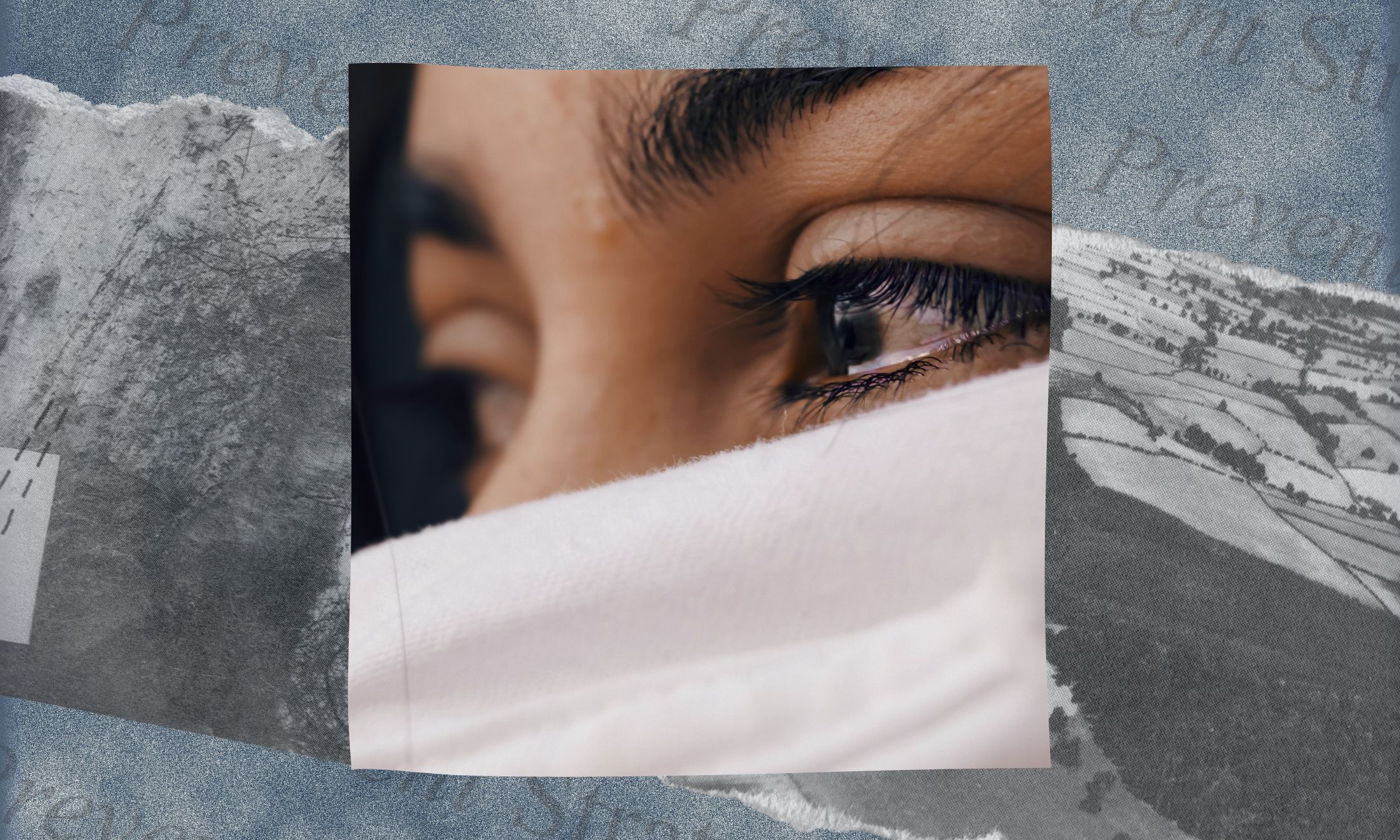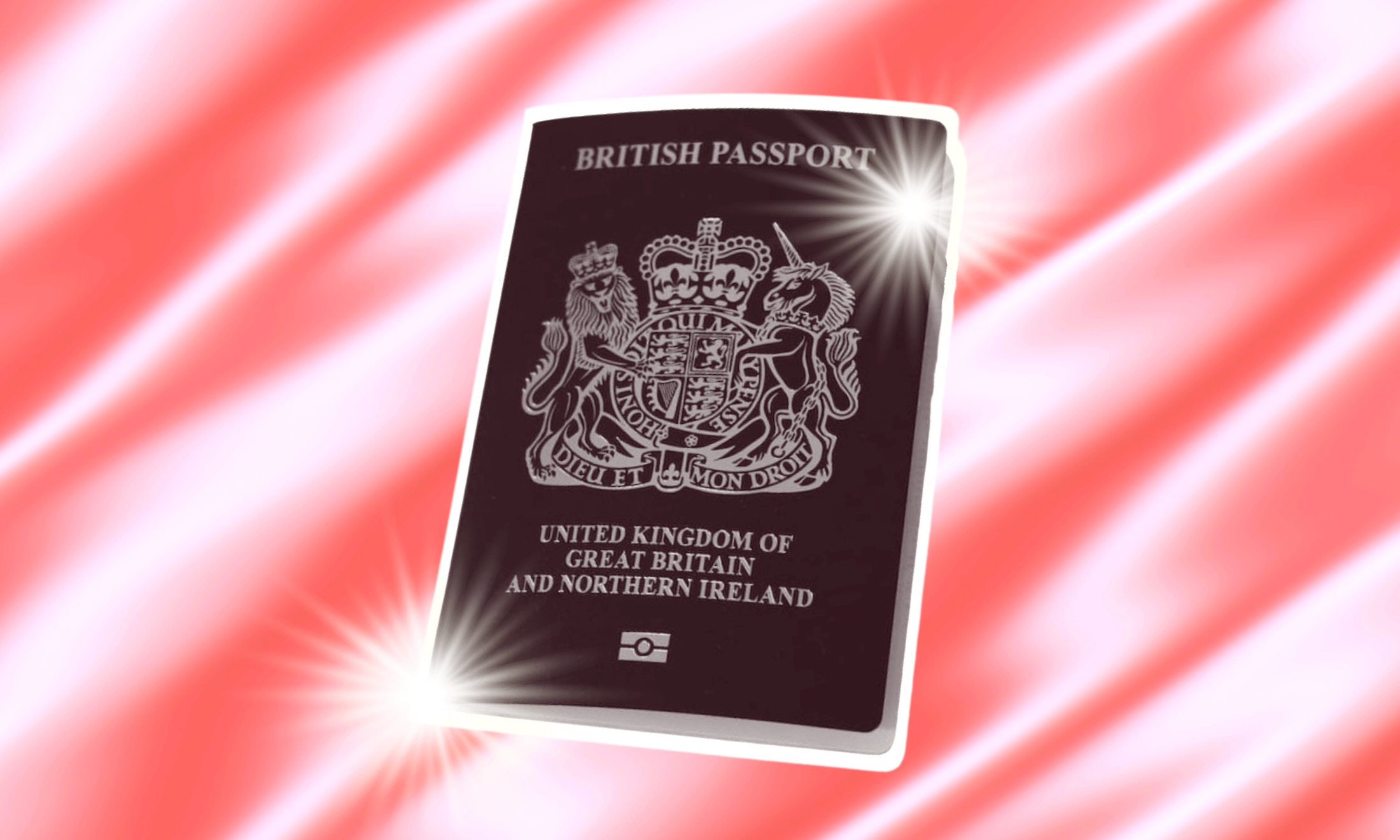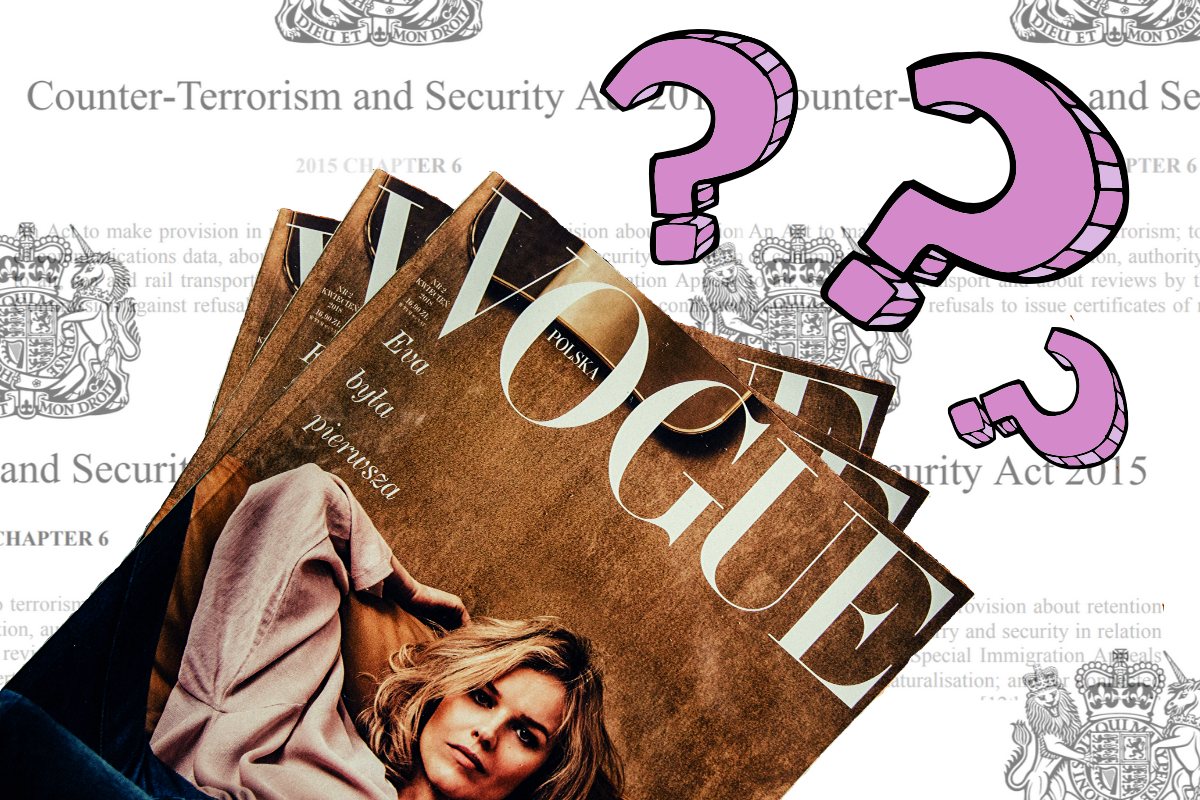
Image via pxfuel
British Vogue’s 2019 November issue contains a rather curious article titled ‘The Women At The Forefront Of The Fight Against Extremism‘. It features a glamorous photoshoot with three Muslim women: Nikita Malik of the Henry Jackson Society (a right-wing neoconservative think tank known for the anti-immigrant and Islamophobic views of its directors), Yasmin Green of Jigsaw, and Sara Khan, the Home Office’s Commissioner for Countering Extremism (CCE). The article portrays the women as beleaguered but empowered figures in a “largely male battleground”, committed to “keeping us safe”. It uses women’s empowerment and a series of sleek images to casually gloss over the profoundly troubling industry that the women are a part of.
Though Vogue doesn’t have the best track record (for instance Asma Al-Assad, the wife of dictator Bashar al-Assad, was described as “wildly democratic” in an infamous profile piece), for precious pages to be taken up with state propaganda is particularly out-of-touch. This article – in effect a marketing device for the Home Office’s dirty work – managed to fly under the radar by appealing to Vogue’s “luxury shopper” audience (likely a majority white, middle class readership) who in all likelihood conflate the hijab with oppression, and glamour with liberation. It espouses a white feminist model of empowerment that erases womxn who reject capitalist, imperialist, and patriarchal values.
“The smiles, tasteful lighting, and natural make-up cover up the well-documented harm that programmes like Prevent enact”
Researcher Shereen Fernandez argues that Vogue’s article “glam-washes” the war on terror, suggesting it reads “like an advert for the organisations these women work for as well as an endorsement of the wider counter-extremism industry.” She also notes that the article is a “well-timed” PR exercise for the Home Office, considering the recent publication of Sara Khan’s report on “Challenging Hateful Extremism”. The smiles, tasteful lighting, and natural make-up cover up the well-documented harm that programmes like Prevent enact. This glossy veneer hides the negative impact of invasive state surveillance, the Islamophobia inherent in counter-extremism policy, and apparently trifling facts like how Sara, who likes to portray herself as coming from a grassroots activist background, has close ties to a propaganda firm employed by the Home Office, and now works for the government department.
I spoke to two Muslim women, both impacted by and challenging counter-extremism in their work. Researcher Dr Khadijah Elshayyal reflected on the pervasive nature of counter-extremism, noting that: “Securitisation and counter-extremism is a cloud that exists over everything. There’s no escaping it.” She found Vogue’s article unremarkable: “It’s the dolled-up face of acceptable Islam. Vogue probably assumes it’s being benevolent to Muslim women but it’s just giving room to state propaganda.”
“[Counter-extremism] led to a lot of self-censorship”, Afroze Zaidi, a writer based in Birmingham, tells me. “But being a critically engaged and politcally participating Muslim doesn’t mean acquiescing. You have a right to dissent”. She continues, “Even organisations like CAGE and the Islamic Human Rights Commission face backlash from Muslims because we’ve internalised counter-extremist rhetoric, what it means to be an extremist or a moderate Muslim.”
“It’s all the more insidious that the Home Office is pushing women of colour and Muslim women to the forefront of its counter-extremist agenda”
It’s all the more insidious that the Home Office is pushing women of colour and Muslim women to the forefront of its counter-extremist agenda. Khadijah warns that we must focus on counter-extremism as a whole, explaining that, “It’s not about individuals. The system is corrupt.” In fact, focusing on individuals plays into the hands of the counter-extremist industry, which often frames dissent through the lens of personal attack on its practitioners, rather than as valid criticism. Khadijah adds, “Nobody should be attacked ad hominem, but no one in a public facing role like the CCE should be above criticism. Just because they are taking risks doesn’t mean they’re exempt from taking accountability for their actions.”
Counter-extremism has created an atmosphere of mistrust and suspicion that permeates everyday activities such as going to the mosque or to school, and its impact is difficult to measure. Actions taken in the name of “counter-extremism” enable abuses against everyday people through colonial, carceral logic in order to justify Britain’s indefensible foreign policy, its funding of the arms trade and its imperial legacies. It relies upon convenient historical elisions, such as leaving out Britain’s violent colonial history or the fact that homophobia is not something which sprung into existence outside of Britain. This is why it’s important to consider Islamophobia as a structural issue, rather than as something demonstrated by an individual’s actions.
Fortunately, there are numerous activists, academics and organisations working to undo the impact of counter-extremism on Muslim lives. In fact, there are many Muslim women Vogue could have contacted: women like Shereen, as well as academic Dr Fatima Rajina, and Naila Ahmed who works at CAGE.
“Surviving and caring for one another in the face of state-sponsored gaslighting are integral forms of dissent”
There are also writers and artists holding space for Muslims in the face of harmful and intrustive counter-extremism policies: Poetic Pilgrimage, a British Muslim hip-hop duo (Muneera Rashida and Sukina Abdul Noorin) draw upon spirituality and Black British traditions in their work; spoken word poet Suhaiymah Manzoor-Khan develops videos based on her research on Islamophobia, and conceptual photographer Sabiheh Awanzai Mahmoud challengesdefinitions of Britishness in her art. It’s also important to remember the informal economies of care rooted in community and family which act as resistance to structural Islamophobia, such as caregivers who must explain to their children why they are perceived as threats to state security. Surviving and caring for one another in the face of state-sponsored gaslighting are integral forms of dissent.
Vogue’s platforming of these figures reminds us that representation is not liberation. Nowadays, it seems that as long as our faces are fierce it doesn’t matter what we stand for. But solidarity isn’t about aligning ourselves to the most powerful. It is about holding space for our differences with an eye to the most vulnerable in society, those who will never make it into Vogue. Until we start fighting oppression as systemic and structural we will find that these systems continue to co-opt our best intentions to serve their purposes.


